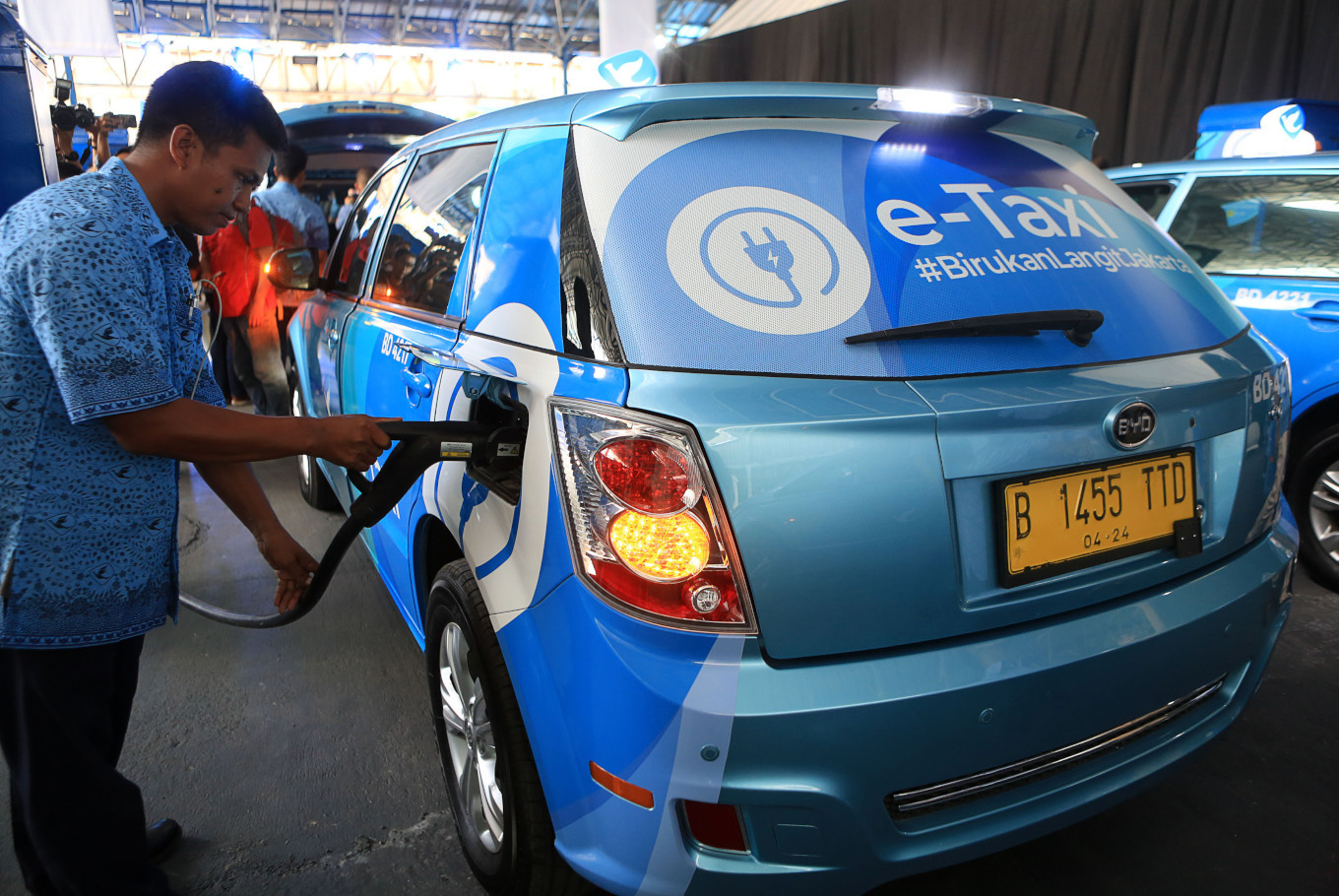Popular Reads
Top Results
Can't find what you're looking for?
View all search resultsPopular Reads
Top Results
Can't find what you're looking for?
View all search resultsHigh capital requirement poses challenge for Indonesia’s battery industry: Expert
Change text size
Gift Premium Articles
to Anyone
T
he sizeable initial investment required to establish a lithium battery manufacturing facility is one of the primary challenges in developing the country’s battery industry, an expert has stated.
Sebelas Maret State University (UNS) School of Engineering professor Muhammad Nizam on Aug. 21 said that while Indonesia had an abundance of nickel, the primary material for lithium batteries, the industry required a huge amount of investment to start producing batteries for electric vehicles (EV).
“The million-dollar question is, who would put their money on that sector?” he said during a streamed webinar held by the National Research and Innovation Agency (BRIN).
As the world’s largest producer of nickel, Indonesia has been eyeing a more strategic position in the global supply chain for the development of lithium batteries and eventually, electric cars.
President Joko “Jokowi” Widodo, in his state of the nation address on Aug. 14, reiterated the government’s commitment to develop the downstream industry, including for nickel ore, which is expected to be developed as the main material of lithium batteries. Indonesia applied a ban on the export of the commodity in January.
“This will place Indonesia in an even more strategic position in the development of lithium batteries, as the world’s electric vehicle and future technology producer,” Jokowi said.
Read also: Jokowi reaffirms Indonesia’s 'massive downstreaming’ of natural resources
Industry Ministry director of maritime industry, transportation equipment and defense equipment, Putu Juli Ardika, previously also said the government was vying to attract investment in EV battery production facilities.
“EV battery technology is Indonesia’s key to becoming the main player in the [global] EV sector. Therefore, we are pushing for more investment in the EV battery development sector,” he said on July 29, as quoted by kompas.com.
The government announced last year the start of development of an approximately $3.2 billion car battery factory in Morowali, Central Sulawesi, backed by Chinese battery manufacturer Contemporary Amperex Technology (CATL), among others.
Battery-maker PT International Chemical Industry, widely known for its ABC battery product, has also committed to pouring Rp 207.5 billion ($14 million) worth of investment to build lithium ion battery production facilities, commercial production of which is to commence by 2021, according to the Industry Ministry.
The company aims to produce 25 million lithium ion cell batteries per year, equivalent to 256 megawatt-hours (MWh) of electricity.
Besides its capital-intensive nature, the lack of standardization in the EV sector might also be a problem for the future mass use of lithium batteries, as each type of battery would require a different type of charger and treatment due to its electric current and power difference, Nizam of UNS added.
“In the future, the main problem with charging stations would be the different types of batteries that EVs use. Each type of battery requires a different plug, capacity and other factors that need to be standardized,” he said.
Despite the challenges, Nizam said Indonesia had a huge potential for EV battery demand in the future due to its population size, the growth of the global EV industry and the government’s support for low-emission vehicles.
According to his calculation, if 10 percent of scooters and motorcycles in Indonesia were converted into electric scooters, the demand for electric power through batteries would reach 15 gigawatts, adding that electric scooters could become the primary choice for short-haul vehicles in the future.
“Electric motorcycles and battery producers should aim to reach a range of 100 kilometers per charge for the motorcycle to reach its economic factor,” he said.










